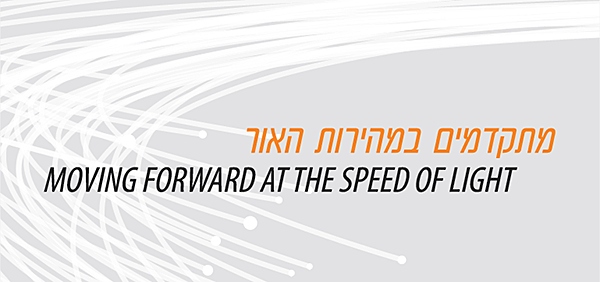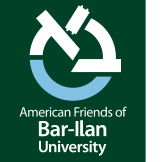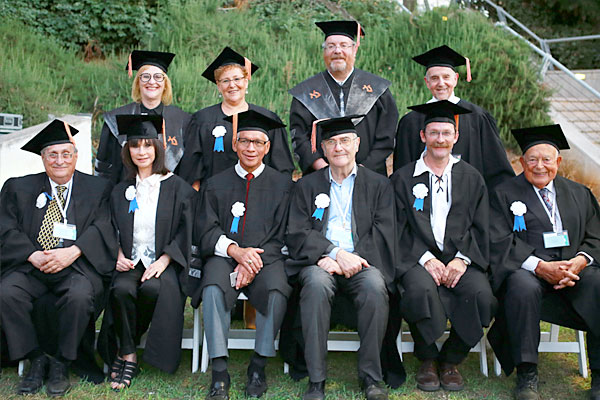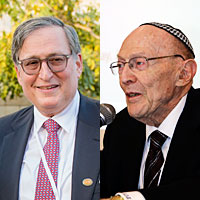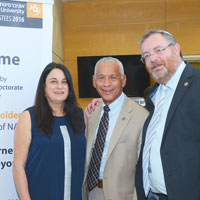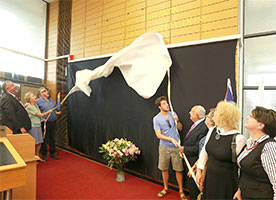A prominent American Jewish spiritual leader and educator, and an influential voice in the Modern Orthodox community, BIU 2016 Honorary Doctor Rabbi Haskel Lookstein lectured at the university on “Rendering Halakhic Decision in a Challenging World.”
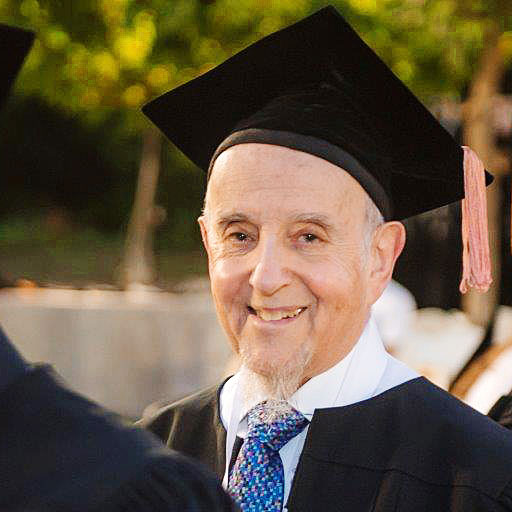 Rabbi Lookstein recounted a fascinating Talmudic debate between Rabbi Eliezer and the Sages regarding the purity of a particular type of oven (Bava Metzi’ah 59b). R. Eliezer declared it pure while the Sages ruled it impure. R. Eliezer then said, “If the law is like me, the carob tree will prove it;” the carob tree was uprooted from its place one hundred Amah… But the Sages countered “We do not bring proof from a carob tree.” Then he called upon the water channel to reverse its flow, which it did, but once again the Sages protested. Even after the walls of the House of Study moved, and a heavenly voice proclaimed his opinion correct, the Sages contested that ever since the Torah was given at Sinai, we do not pay attention to a heavenly voice in matters of Halakha but rather decisions should be rendered according to majority rule, as is written in the Torah. R. Natan met the prophet Elijah and asked him what G-d did in that hour? He said to him: “He smiled and said, ‘My children have prevailed over me, my children have prevailed over me.'”
Rabbi Lookstein recounted a fascinating Talmudic debate between Rabbi Eliezer and the Sages regarding the purity of a particular type of oven (Bava Metzi’ah 59b). R. Eliezer declared it pure while the Sages ruled it impure. R. Eliezer then said, “If the law is like me, the carob tree will prove it;” the carob tree was uprooted from its place one hundred Amah… But the Sages countered “We do not bring proof from a carob tree.” Then he called upon the water channel to reverse its flow, which it did, but once again the Sages protested. Even after the walls of the House of Study moved, and a heavenly voice proclaimed his opinion correct, the Sages contested that ever since the Torah was given at Sinai, we do not pay attention to a heavenly voice in matters of Halakha but rather decisions should be rendered according to majority rule, as is written in the Torah. R. Natan met the prophet Elijah and asked him what G-d did in that hour? He said to him: “He smiled and said, ‘My children have prevailed over me, my children have prevailed over me.'”
Presenting the outlook of the late Rabbi Yehuda Amital, co-head of Yeshivat Har Etzion, Rabbi Lookstein explained that G-d essentially agrees with R. Eliezer because G-d functions on a level of absolute objective truth. When G-d smiles and says “Nitzchuni banai — my children have prevailed over me,” He is acknowledging that humanity cannot live that way. Human beings function on a subjective level. In the real world, Halakha should be decided, taking into consideration human needs, strivings and human failings.
Rabbi Lookstein relayed that he had many discussions about Halakha with Rav Amital, who ruled with the human condition in mind. One example involved a young Russian groom, whose communist brother informed him before the wedding that if G-d forbid, the groom were to die childless, the unmarried brother would refuse to go through the Halitza ceremony, which is necessary to enable the widow to marry again. Contrary to the traditional Halakhic approach, Rabbi Amital allowed the groom to marry his bride al tenai, on condition (that if he dies before his wife gives birth to a child, the marriage is nullified ab initio— from the moment it began.”
Rabbi Lookstein ended with a story about the founding Chabad Rebbe Shneur Zalman of LIady, who stopped studying Torah when he heard a baby crying in the next room. After comforting the baby, he returned and noticed that his son was also studying and had never moved. “I was so immersed in Torah that I didn’t hear the baby cry,” said the son. The Rebbe responded, “If you were so immersed in Torah that you didn’t hear a baby cry, it’s a sign that there is something wrong with your study of Torah.” We need to heed this advice if we are going to change the Modern Orthodox world, said Rabbi Lookstein.
Click here to see a related article by Rabbi Lookstein
